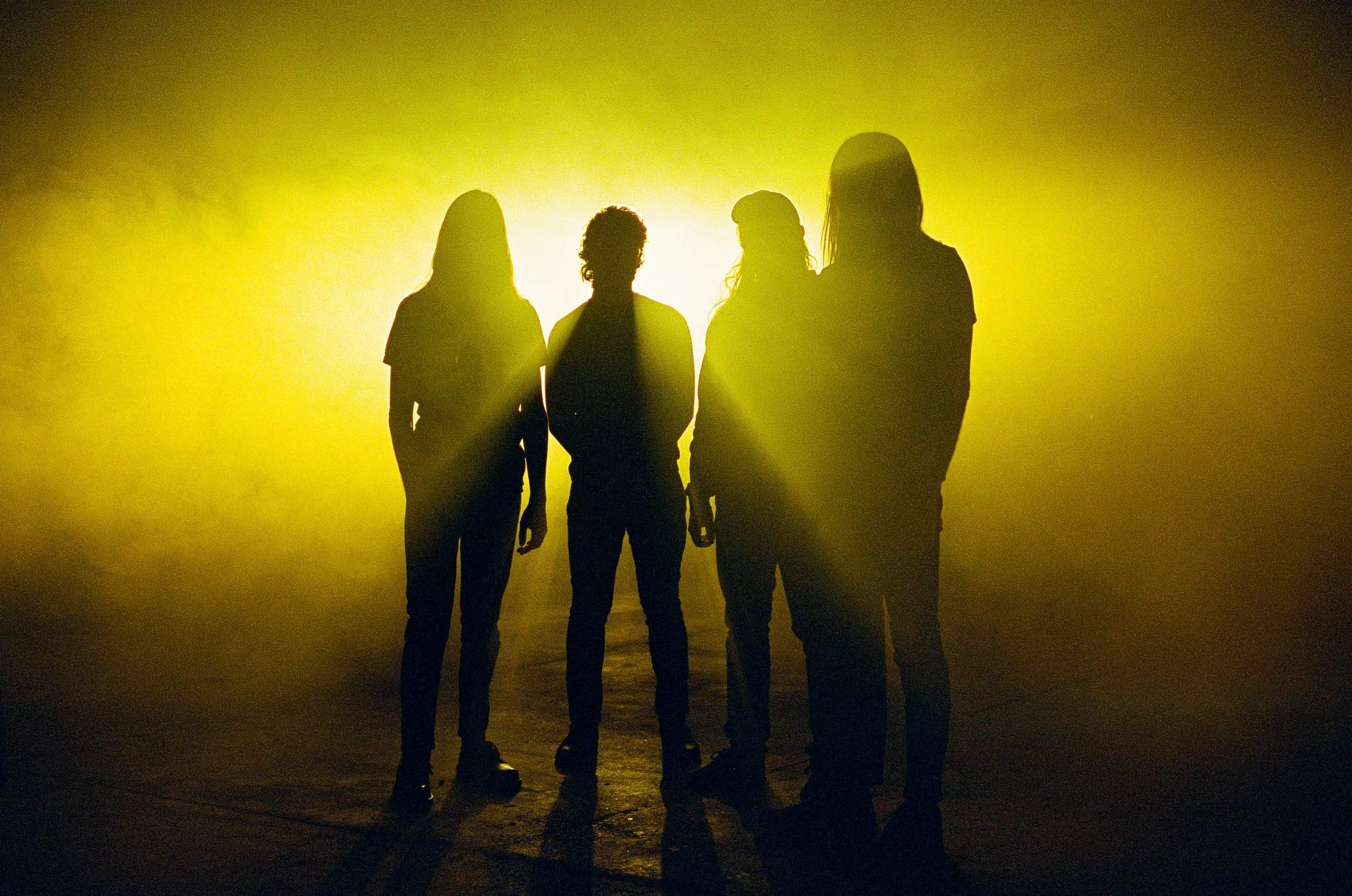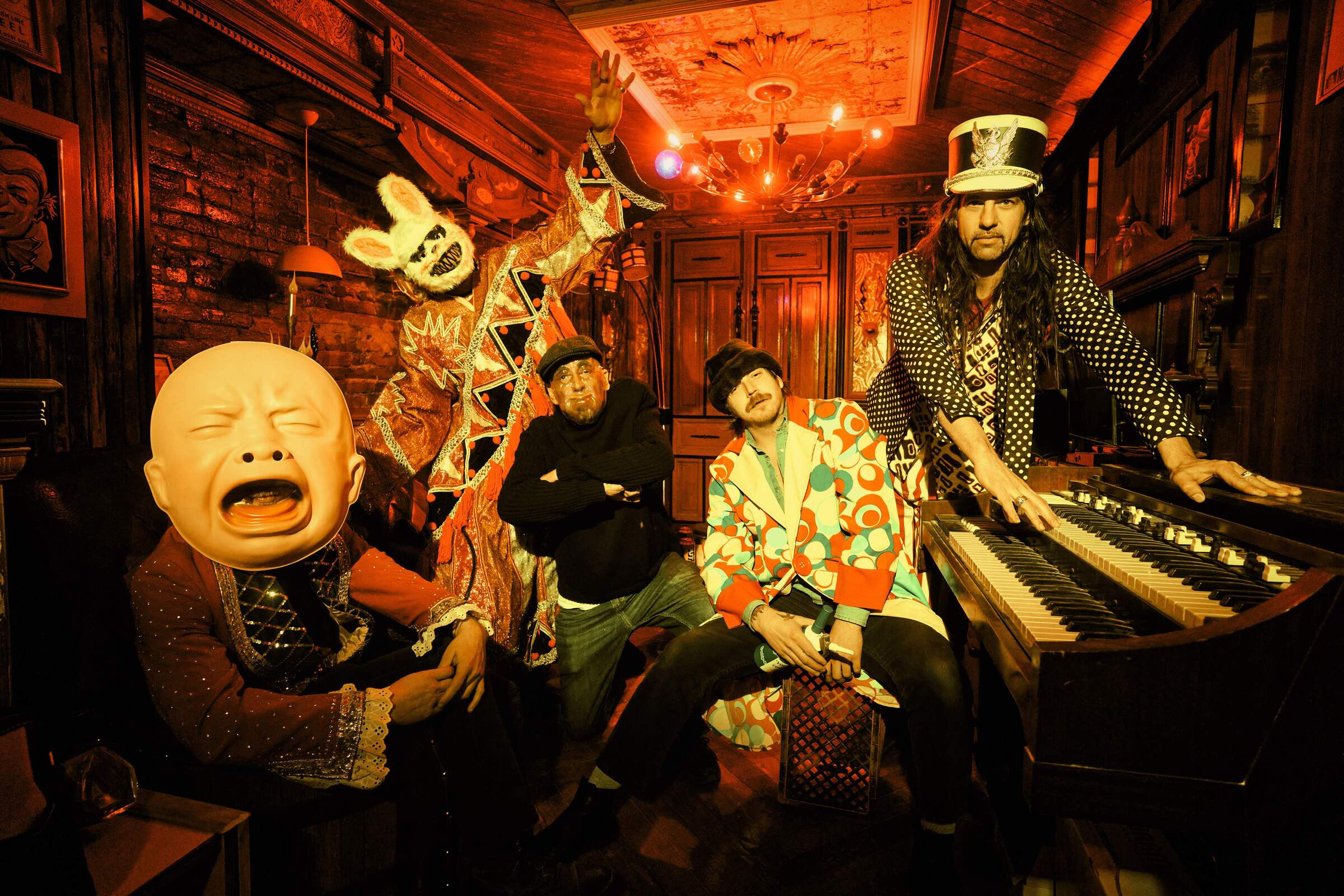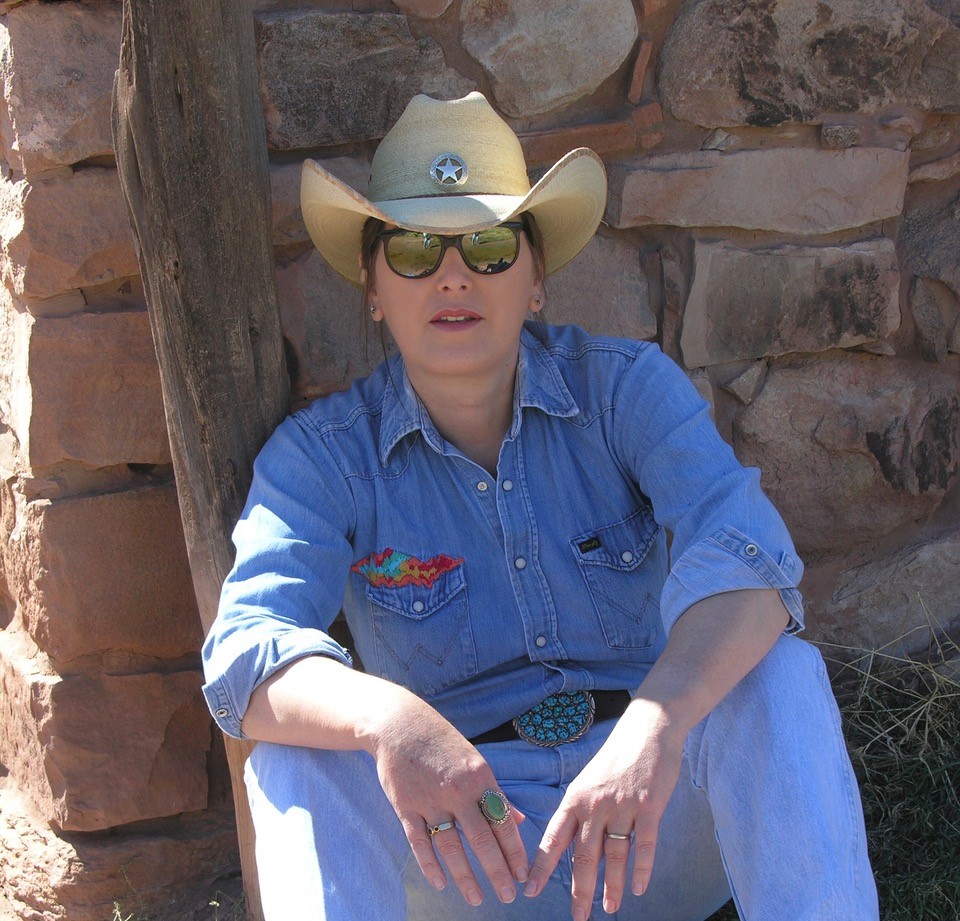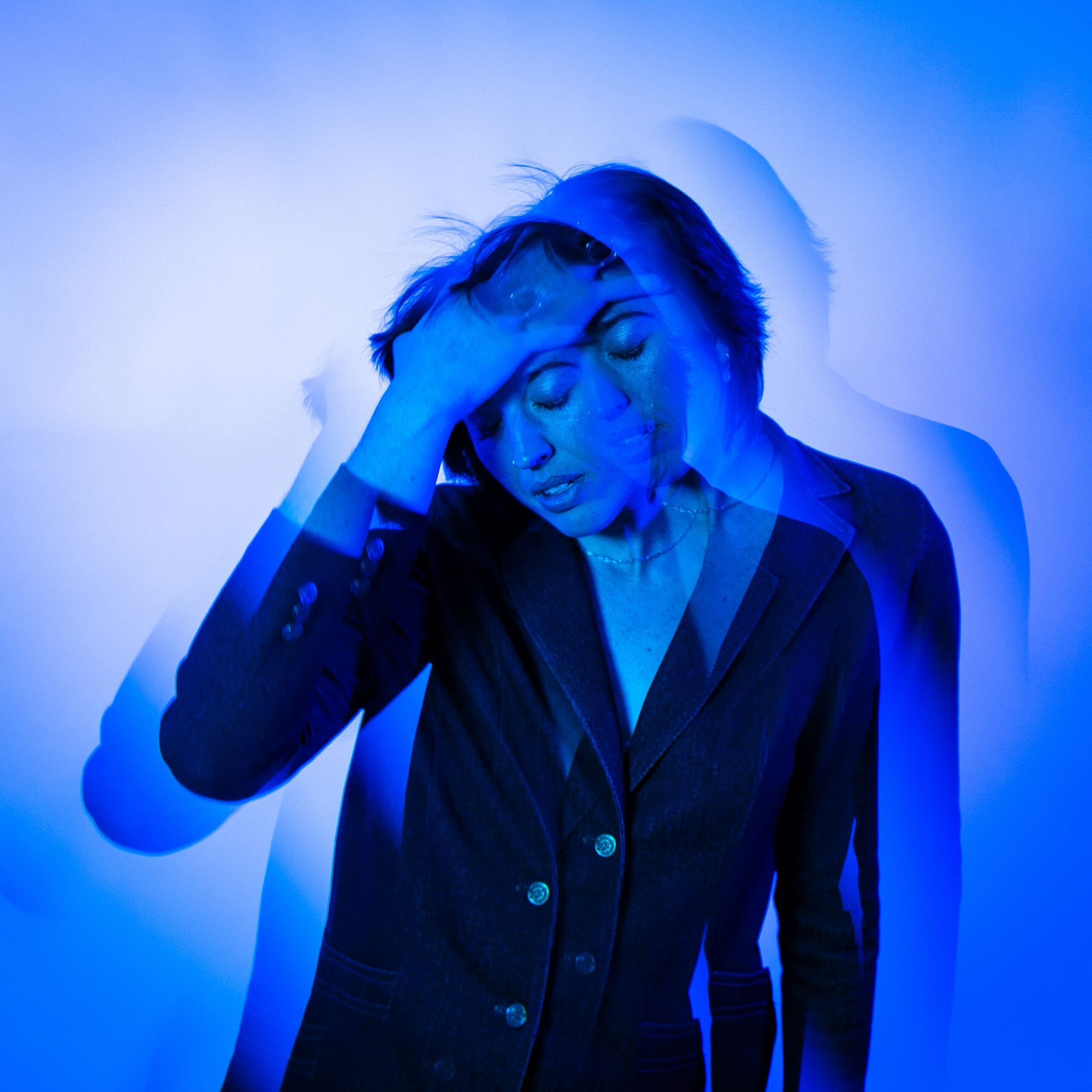REZN | Interview | New Album, ‘Burden’
In July 2021, REZN simultaneously recorded their albums ‘Burden’ and ‘Solace’ at Earth Analog Studios in Tolono, IL, with Matt Russell at the helm. Rather than opting for a double album, the band chose to split the recordings into two distinct records.
‘Solace’ offers a sense of upliftment and narcotic dreaminess, while ‘Burden’ delves into themes of delirium, claustrophobia, and anguish. Musically, ‘Burden’ emphasizes powerful riffs over atmospheric elements, dynamic percussion over ethereal sounds, and dissonance over melodic beauty, yet it maintains a cohesive connection to its predecessor. As expert gear enthusiasts, skilled sound engineers, and veteran DIY artists, REZN crafted a rich and uncompromising sonic experience in their intense, speaker-rattling tracks and profound, psychedelic explorations.
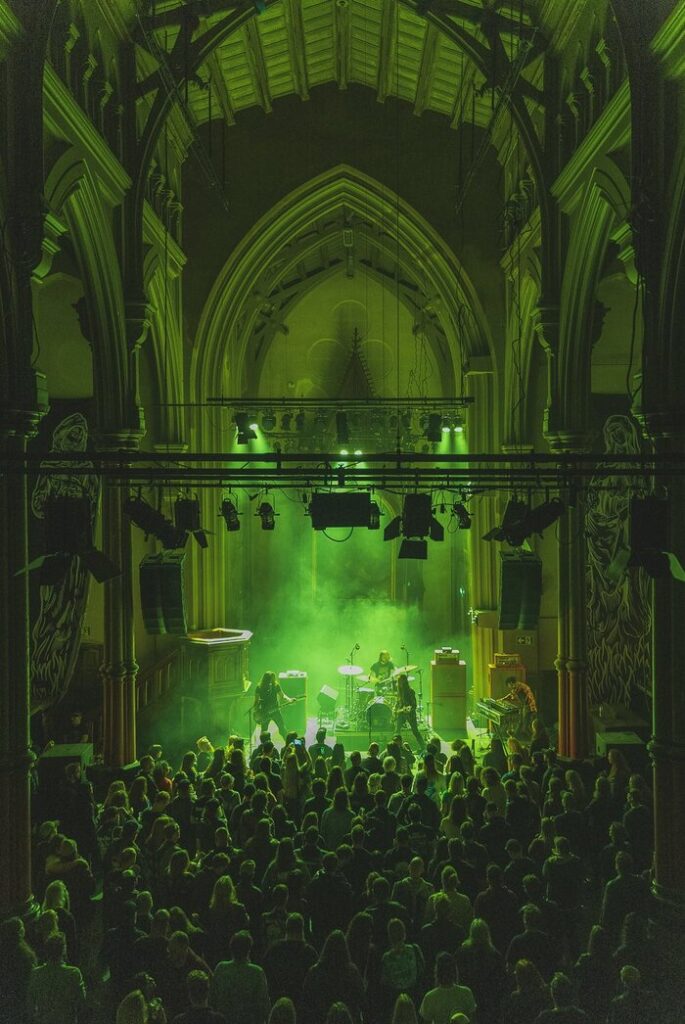
“We always strive to create a soundscape that transports you to a certain place”
Burden is described as a departure from your previous album, ‘Solace,’ with a focus on themes of delirium, claustrophobia, and misery. How did the band collectively decide on this thematic shift, and what inspired the direction for ‘Burden’?
Rob: We wrote both albums at the same time and didn’t realize exactly what themes we were leaning towards until we had a big pile of ideas. We always strive to create a soundscape that transports you to a certain place, so once the dust settled after writing for a bit, we noticed that there were songs that had more beauty and songs that were more disgusting and dissonant. One group felt like conquering a mountain, and the other group felt like being swallowed up by the bowels of hell. So we took both roads and let them grow and develop in either direction, with ‘Burden’ being the darker, more winding descent.
Rob, you’re known for crafting intricate guitar work that forms the backbone of REZN’s sound. How did you approach your role in shaping the heavy, riff-centric atmosphere of ‘Burden’? Were there any specific techniques or gear choices that you found particularly impactful for this album?
Rob: Dissonance and slower tempos are two elements that come to mind. I was simultaneously listening to a lot of death metal and ambient music at the time of writing guitar parts, so that was a fun dichotomy to have as inspiration. It definitely helped make the riffs feel heavier than ever and the atmosphere feel murkier and more delirious. We triple-tracked guitars in certain spots—each one panned left, center, and right—which helped create an extra massive wall of sound during the mixing stages. I guess I was more in a “metal” headspace than on any of our previous records, which allowed more chugs and pinch harmonics to slip into the tracks this time around. I also wanted to step back and let some empty space have more prominence on this record to help create more ominous and isolated-feeling moments. That was honestly harder to accomplish than anything else because everything in your mind is telling you to fill the silence when you have a guitar in your hand.
Phil, the bass often serves as the anchor in REZN’s compositions, grounding the music with its deep, resonant tones. How did you approach your bass lines on “Burden,” especially considering the album’s emphasis on dissonance and heaviness?
Phil: For ‘Burden,’ my focus was mainly on being rhythmic and really complementing what Rob is doing. In several parts, I am the only one keeping the melody intact, so I wanted to be sure I was precise and grounding. I also enjoyed experimenting more with rhythmic bass lines, like in “Indigo.” In that song, I am basically playing the same part throughout the whole song. My goal there was to be as crushing as possible and to help the listener get lost in the repetitive rhythm. ‘Burden’ was also the first time I re-amped all my bass lines in the studio. When we were tracking, I took a DI signal and then sent it through my amp and whatever pedals I wanted to use after the fact. With previous albums, I really had trouble taming the low end of my bass and keeping it from overwhelming other tracks. Re-amping was amazing for this record because I was able to adjust the tone of my amp and pedals to the studio itself. I was also able to make distortion tones using a conglomerate of many different effects as well as overdrive from the amp.
“I think the concept that links those two records is emotional weight”
‘Burden’ was recorded simultaneously with ‘Solace’ back in 2021, but each album has its own distinct emotional timbre. Can you elaborate on how you maintained cohesion between the two records while still allowing ‘Burden’ to stand out as its own entity?
Rob: I think the concept that links those two records is emotional weight. ‘Solace’ has themes and emotions that make you feel lighter, while ‘Burden’ is designed to drag you down and feel heavier. When you put those emotions in a visual space like the album art, it helps you think about each record in that context. ‘Solace’ and ‘Burden’ are like siblings to each other, but not in a linear Part 1 and Part 2 style. They were created as two separate records that can stand alone while existing on the same timeline. We also mixed ‘Burden’ with our friend Matt Russell at least a year after mixing ‘Solace,’ so it was nice to have that perspective on how we wanted ‘Burden’ to feel in comparison.
‘Burden’ features a guest guitar solo from Mike Sullivan of Russian Circles. How did this collaboration come about, and what do you feel Mike’s contribution adds to the overall sonic landscape of the album?
Rob: We did a tour with Russian Circles in the States in 2022, which was the first time we really hung out, but our drummer Patrick had been doing sound for them for a few years before that. After that tour, we were finishing up some final overdubs for ‘Burden’ and realized we needed a solo in ‘Chasm,’ one that could really stand out since it’s essentially the climactic end of the record. Mike has roots in Chicago and was in town rehearsing before another Russian Circles tour, so we were able to steal him for a day and record some stuff in our practice space studio. He showed up with just his guitar and pedalboard and nailed the solo in the first few takes. His tapping style cuts through the mix so well, and the harmonized octave melodies are perfect for adding tension and anxiety to that moment in ‘Chasm.’ I don’t want to inflate his ego too much though, so I’ll say that overall his solo is listenable.
REZN has cultivated a dedicated following in the underground heavy psych scene, with your albums often selling out multiple vinyl pressings. How do you balance meeting the expectations of your fanbase while also pushing the boundaries of your sound and creativity?
Spencer: I think we try our best not to meet too many expectations that come from outside the four of us. There is sometimes an element of trying something new and thinking, “Eh, maybe that’s too much of that,” but that usually just comes from a place of trying to create a balanced sonic environment, not necessarily trying to please anyone other than ourselves. We’d like to think our fanbase is prepared for the fact that we could make something brutal, or something ethereal, or any combination of the two if the music calls for it.
Can you share any personal anecdotes or memorable moments from the making of ‘Burden’? Were there any instances where the band faced unexpected challenges or breakthroughs during the recording process?
Spencer: Our time spent recording both ‘Solace’ and ‘Burden’ involved laying down way more tracks than necessary. There could have been 70+ tracks at any given moment, but we were experimenting with the idea of having every color available to us on the palette and then just retroactively reducing the number of sonic elements at the mixing stage. This was our first time approaching the recording process this way, and I think it was creatively very liberating and a promising strategy for future records of ours as well. An additional nice thing that emerged from this approach was the incorporation of the lap steel guitar. We were just laying down recordings of any and all instruments that were lying around, and the lap steel was one that immediately made sense on the sonic canvas.
As seasoned DIY veterans, REZN has honed your craft over the years. How has your approach to songwriting and recording evolved since your early releases, and what lessons have you learned along the way that shaped the creation of ‘Burden’?
Rob: Definitely. All of our personal creative influences are shining through more and more as we experiment with each record. Listening to and being inspired by different styles of music and visual art that might not seem related to our band has helped us think about song structure and feeling in new ways. Simplicity and space were big lessons for us as well. We’re still working on that though, so in the future, I’d like to see us implement those ideas of restraint even further. Maybe we’ll do a cover of ‘4’33’ one day.

Looking ahead, what are your aspirations for the future of REZN? Are there any new musical territories or creative endeavors that you’re eager to explore in your upcoming projects?
Phil: In terms of writing, we always want to do whatever we can to explore new territories within the REZN universe. One of our goals as a band is to not make the same album twice. We are always writing new music, and we are already working on ideas for the next album. Right now, we are exploring new instrumentation as well as taking a more minimalist approach to tracking. We are in the very early stages of writing right now, so I’m sure if you ask us again in a couple of months, we will have a different answer.
Klemen Breznikar
Headline photo: Alec Basse
REZN Official Website / Facebook / Instagram / YouTube / Bandcamp / Spotify
Sargent House Official Website / Facebook / Instagram / Twitter / Bandcamp / YouTube
REZN | Interview

